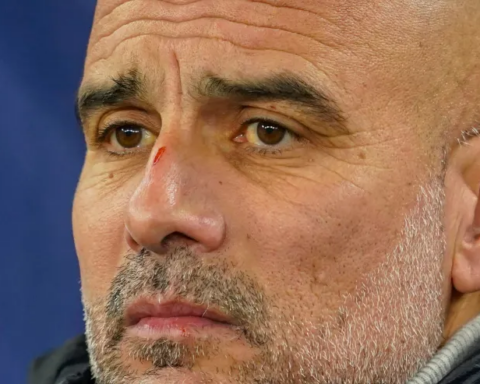Sports are more than just a pastime; they are a significant economic force. The economics of sports involves understanding how financial principles apply to sports teams, events, and the industry as a whole. This includes revenue generation, labor markets, the impact of sports on local economies, and the intricate web of stakeholders involved. This article delves into the business behind sports, shedding light on how the economics of this vibrant sector works.
Revenue Streams in Sports
Ticket Sales and Attendance
Ticket sales have traditionally been a primary revenue source for sports teams. The number of tickets sold, combined with the pricing strategy, directly impacts the income generated from attendance. Factors influencing ticket sales include team performance, stadium capacity, fan loyalty, and the overall experience offered at the event.

Broadcasting Rights
One of the most lucrative revenue streams in modern sports is the sale of broadcasting rights. Networks pay vast sums to secure the rights to broadcast games, knowing that live sports draw significant viewership. This revenue is often shared among teams in a league, contributing substantially to their financial stability.
Sponsorships and Advertising
Sponsorship deals and advertising contracts form another critical revenue stream. Companies are willing to pay premium amounts to associate their brands with sports teams and events. Sponsorships can include naming rights for stadiums, logos on jerseys, and promotional deals. Advertising revenue comes from commercials aired during broadcasts and digital advertising on team websites and social media platforms.
Merchandising
Merchandising involves selling branded products, such as jerseys, hats, and other memorabilia. This not only provides direct revenue but also strengthens fan loyalty and team brand recognition. Successful merchandising strategies can significantly boost a team’s income, especially for popular franchises with a global following.
Prize Money and Competitions
In individual sports like tennis and golf, prize money from competitions is a significant income source for athletes. Major tournaments offer substantial financial rewards, which can make up a large portion of an athlete’s earnings.
Economic Impact of Sports
Local Economies
Sports teams and events can have a profound impact on local economies. The construction and operation of sports facilities create jobs and stimulate local businesses. On game days, restaurants, hotels, and other local services see increased patronage. Large-scale events like the Olympics or the World Cup can transform local economies through tourism and international exposure.
Employment
The sports industry provides employment to a wide range of professionals, including athletes, coaches, administrative staff, marketers, and event coordinators. Additionally, related industries such as sports journalism, broadcasting, and retailing also benefit from sports.
Infrastructure Development
Investment in sports infrastructure, such as stadiums and training facilities, can lead to broader urban development. These projects often come with improved transportation links and urban regeneration, benefiting the community at large.
Financial Management in Sports
Budgeting and Financial Planning
Effective financial management is crucial for the sustainability of sports organizations. This involves meticulous budgeting and financial planning to ensure that revenues cover expenses, including player salaries, facility maintenance, and marketing costs. Financial prudence is especially important for smaller clubs with limited revenue streams.
Player Salaries and Transfers
Player salaries represent one of the most significant expenses for sports teams. The economics of player transfers and contracts is a complex area, influenced by market demand, player performance, and team budgets. High-profile transfers can involve multi-million dollar deals, affecting a team’s financial health.
Revenue Sharing and Salary Caps
To maintain competitive balance, many leagues implement revenue-sharing models and salary caps. Revenue sharing helps distribute income more evenly among teams, preventing wealthier clubs from dominating the league. Salary caps limit the total amount a team can spend on player salaries, promoting parity and financial stability.
Investment and Ownership
Ownership structures in sports can vary widely, from publicly traded companies to privately owned clubs. Investment in sports teams can come from various sources, including individual investors, corporations, and private equity firms. The motivations behind these investments range from financial returns to personal passion for the sport.
Challenges in the Economics of Sports
Economic Disparities
One of the significant challenges in sports economics is the disparity between rich and poor teams. Wealthier teams with larger fan bases and better revenue streams can afford higher player salaries and better facilities, creating a competitive imbalance. Efforts like revenue sharing and salary caps aim to mitigate these disparities but do not eliminate them entirely.
Financial Viability of Small Clubs
Small clubs often struggle with financial viability, especially those in lower leagues or less popular sports. These clubs may rely heavily on gate receipts and local sponsorships, making them vulnerable to economic downturns and fluctuations in attendance.
Impact of Economic Crises
Economic crises, such as recessions or the COVID-19 pandemic, have a substantial impact on the sports industry. Reduced consumer spending affects ticket sales and merchandise, while social distancing measures can limit stadium attendance. During such times, sports organizations must adapt by finding new revenue streams and cutting costs.
Ethical and Social Considerations
The commercialization of sports raises ethical and social considerations. Issues such as the exploitation of young athletes, the impact of sponsorships from controversial companies, and the social responsibility of sports organizations are critical areas of concern. Balancing profit motives with ethical practices is an ongoing challenge in the industry.
Future Trends in Sports Economics
Digital Transformation
The digital transformation of sports is creating new revenue opportunities. Streaming services, virtual reality experiences, and eSports are expanding the reach and engagement of traditional sports. Monetizing digital content through subscriptions, pay-per-view, and digital advertising is becoming increasingly important.
Sustainability Initiatives
As sustainability becomes a global priority, sports organizations are adopting green practices. Investing in eco-friendly stadiums, reducing carbon footprints, and promoting sustainability initiatives can attract environmentally conscious sponsors and fans.
Globalization of Sports
The globalization of sports is opening up new markets and revenue streams. Teams and leagues are expanding their reach internationally, through tours, broadcasting deals, and marketing campaigns. This global approach helps diversify income sources and build a broader fan base.
The economics of sports is a multifaceted field, encompassing various revenue streams, financial management practices, and economic impacts. Understanding the business behind the games is essential for stakeholders, including team owners, managers, players, and fans. By recognizing the financial dynamics at play, the sports industry can continue to thrive, offering entertainment and economic benefits to communities worldwide. As the industry evolves, adapting to new trends and challenges will be crucial for sustained success.







